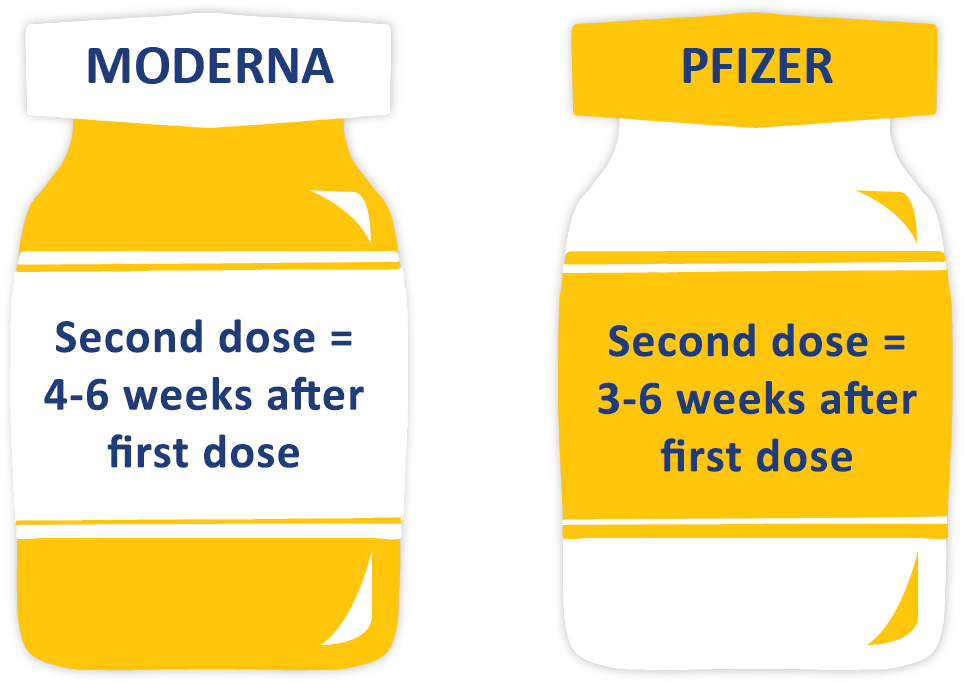Beginning Monday, March 29, all adults age 18 and older in Texas will be eligible to receive the COVID-19 vaccine, state health officials announced on March 23. However, many are still questioning the effectiveness, safety and forthcoming distribution methods of the vaccine.
According to the Texas Department of State Health Services, or DSHS, vaccine supplies are expected to increase next week. The DSHS asked the public to continue prioritizing appointments for those 80 years and older, and announced the launch of a website that will allow people to register for a vaccine appointment through public health providers.
Dr. Tiffany Skaggs, a fellow of the American Academy of Family Physicians, and Chief Medical Officer of Texas A&M’s Student Health Services, said vaccines represent the best hope for mitigating the COVID-19 pandemic.
“Through vaccines, large swaths of the population will be ‘unavailable’ for the virus to infect and replicate itself in before moving to the next vulnerable person,” Skaggs said. “All the current COVID-19 vaccines are expected to vastly decrease the number of fatal infections. I think everyone who wants the vaccine should take it.”
Possible complications from the COVID-19 vaccines are much less likely than the risk of death from the disease itself, Skaggs said.
“Effectiveness is variable based on a person’s immune system, the vaccine received and the COVID-19 variants,” Skaggs said. “Virus spread and vaccinations must both remain forefront in the efforts to mitigate COVID-19. Reducing transmission through physical distancing, hand hygiene and face coverings is still extremely important to slow the virus, and vaccination efforts must move forward as fast as possible to protect individuals and communities.”
After receiving the Moderna two-dose series COVID-19 vaccine, Skaggs said she experienced brief side effects, but being immunized was worth it for her peace of mind, her safety and that of her patients and the A&M community.
“We need community leaders to be vocal in their support of vaccines and to serve as role models so … the public will respond,” Skaggs said. “In many ways, the state and federal government is achieving [domestic tranquility] by funding vaccines as well as distributing them across the state.”
Skaggs said she is encouraged by the Emergency Use Authorization for the Johnson & Johnson vaccine, as the increase in vaccine supply will go a long way to help fairness in distribution.
“In my opinion, increasing the number of vaccine sites as well as expanding the hours is the best way to distribute,” Skaggs said. “Make distribution sites in coffee bars, for example. Make it fast and keep it free.”
Despite efforts to improve vaccine rollout, many Americans are still unsure of whether it is safe to receive a COVID-19 vaccine. Instructional professor in the School of Public Health Angela Clendenin, Ph.D., said there are a few factors that are feeding into “vaccine hesitancy.”
“There is already a fairly significant anti-vaccination movement in the United States,” Clendenin said. “On top of that, most people know that it takes a long time to develop the vaccine, but this vaccine was developed in 18 months for a disease we’ve never seen before. There are people who feel this was rushed and there’s no way all the safety protocols could have been followed and there were shortcuts taken, so it might be not effective. But that’s not the case.”
During clinical trials, the Moderna and Pfizer vaccines had over 90 percent efficacy rates, Clendenin said.
“The process of producing a vaccine of any kind is very rigorous,” Clendenin said. “There are multiple levels of the studies to manufacture a vaccine that are geared towards ensuring the safety and effectiveness that’s developed.”
There were a lot of initial challenges with the administration of the COVID-19 vaccine, Clendenin said, but since the speed of vaccine rollout has drastically increased, there should be enough vaccines available for Americans over the age of 18 by the summer.
“The distribution system will settle into a nice, effective rhythm, so they will just open it up [to everyone],” Clendenin said. “You will be able to go to your doctor, a mass vaccination hub, CVS or Walgreens, and you will be able to get a vaccine.”
When the vaccines are widely available, it’s exceedingly important for college students to get vaccinated, Clendenin said. Local data shows a significant outbreak among college-age students as a result of typical college behaviors, such as living in dorms and congregating during parties or organizational gatherings, Clendenin said.
“This pandemic has placed an emphasis on preparedness and public health,” Clendenin said. “People have a renewed interest in their own health. They realize that we can accomplish great things in a short amount of time, like the vaccine being developed. We all have a new sense of responsibility to not only take care of ourselves, but to make sure we take care of others.”
A&M experts talk vaccine hesitancy, mitigating COVID-19
March 28, 2021
Photo by via dshs.tx.gov
With an increase in vaccine supply, Texas state health officials announced the availability of the COVID-19 vaccine for all adults 18 or older beginning on Monday, March 29.
0
Donate to The Battalion
$2065
$5000
Contributed
Our Goal
Your donation will support the student journalists of Texas A&M University - College Station. Your contribution will allow us to purchase equipment and cover our annual website hosting costs, in addition to paying freelance staffers for their work, travel costs for coverage and more!
More to Discover










